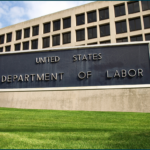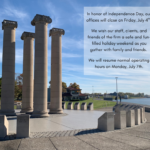[vc_row][vc_column][vc_column_text]
The U.S. District Court for the Middle District of Florida recently denied a National Labor Relations Board (NLRB) Regional Director’s petition for an injunction against a national transportation company because the NLRB did not demonstrate that the alleged unfair labor practices caused employee support for the Union to decline to the point where awaiting a final order from the NLRB would destroy the Union’s ability to bargain. Kahn, Dees, Donovan & Kahn lawyers served as lead counsel for the employer.
In early 2012, the Union filed a petition seeking to represent a unit of the employer’s drivers. Following an election, the unit was certified by the NLRB’s Regional Director. Although the parties scheduled several bargaining sessions, some meetings were ultimately cancelled by the employer. After these meetings were rescheduled, but before they occurred, the D.C. Circuit Court of Appeals issued its decision in Noel Canning v. NLRB. Based on this development, the employer contacted the Union to request cancelation of an upcoming bargaining meeting to give the employer time to consider the impact of Noel Canning.
When the employer did not attend the meeting, the Union filed an unfair labor practice charge. Although the employer maintained its willingness to meet and bargain, it insisted on reserving any rights resulting from the Noel Canning case as that case moved through the courts on appeal. The Union refused to agree to the employer’s reservation of rights under Noel Canning and no additional bargaining occurred.
An NLRB administrative law judge (ALJ) found the employer’s cancellation of several meetings constituted a refusal to bargain in good faith. The employer appealed the ALJ’s decision to the NLRB in Washington. While the case was pending before the NLRB, the Regional Director filed a petition in federal court requesting an injunction be granted under Sec. 10(j) of the National Labor Relations Act requiring the employer to meet and bargain without conditions.
The standard for a Sec. 10(j) injunction varies depending upon the federal circuit in which the petition for injunction is filed. In the Eleventh Circuit – which covers Florida, Georgia, and Alabama – federal courts generally grant injunctions under Sec. 10(j) if the NLRB proves there is “reasonable cause” to believe an unfair labor practice occurred, and the imposition of an injunction would be “just and proper.” Reasonable cause typically exists when the NLRB advances a coherent legal theory and provides sufficient evidence to support that theory. The just and proper threshold is often satisfied with proof that an unfair labor practice has caused employee support for the union to decline to the point that waiting for a final order from the Board would effectively destroy the union’s ability to bargain.
Although the Court found the Regional Director advanced a coherent legal theory (the employer failed to bargain in good faith) and provided evidence to support the theory (the employer cancelled meetings), the Court also found the record lacked evidence indicating an injunction under Sec. 10(j) would be “just and proper.” As such, the Court denied the Regional Director’s request for injunctive relief.
In recent years, the NLRB’s General Counsel in Washington has become more aggressive in using one of the most powerful tools in its arsenal – injunctions under Sec. 10(j) – to short-circuit the NLRB’s administrative process.
For additional information on how these legal developments might impact your business, please contact Jon Goldman at JGoldman@KDDK.com or (812) 423-3183.
About Jon Goldman

Jon Goldman, a Partner at Kahn, Dees, Donovan & Kahn, LLP, in Evansville, Indiana, represents employers in all areas of labor and employment law. Jon also represents both public and private universities in a broad range of federal and state, statutory and regulatory issues. Jon routinely handles matters before the Equal Employment Opportunity Commission, the Department of Labor and the Department of Education’s Office of Civil Rights. Jon has tried employment law cases to juries in both Indiana and Kentucky; and has defended employers in discrimination, wrongful termination, labor arbitration, NLRB and other employment cases. In addition, Jon has represented employers in union avoidance and union representation election campaigns.
[/vc_column_text][/vc_column][/vc_row]




